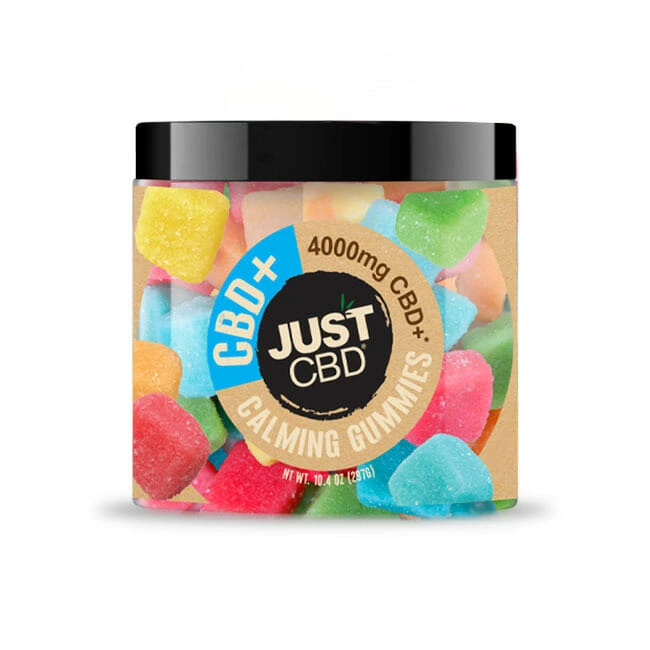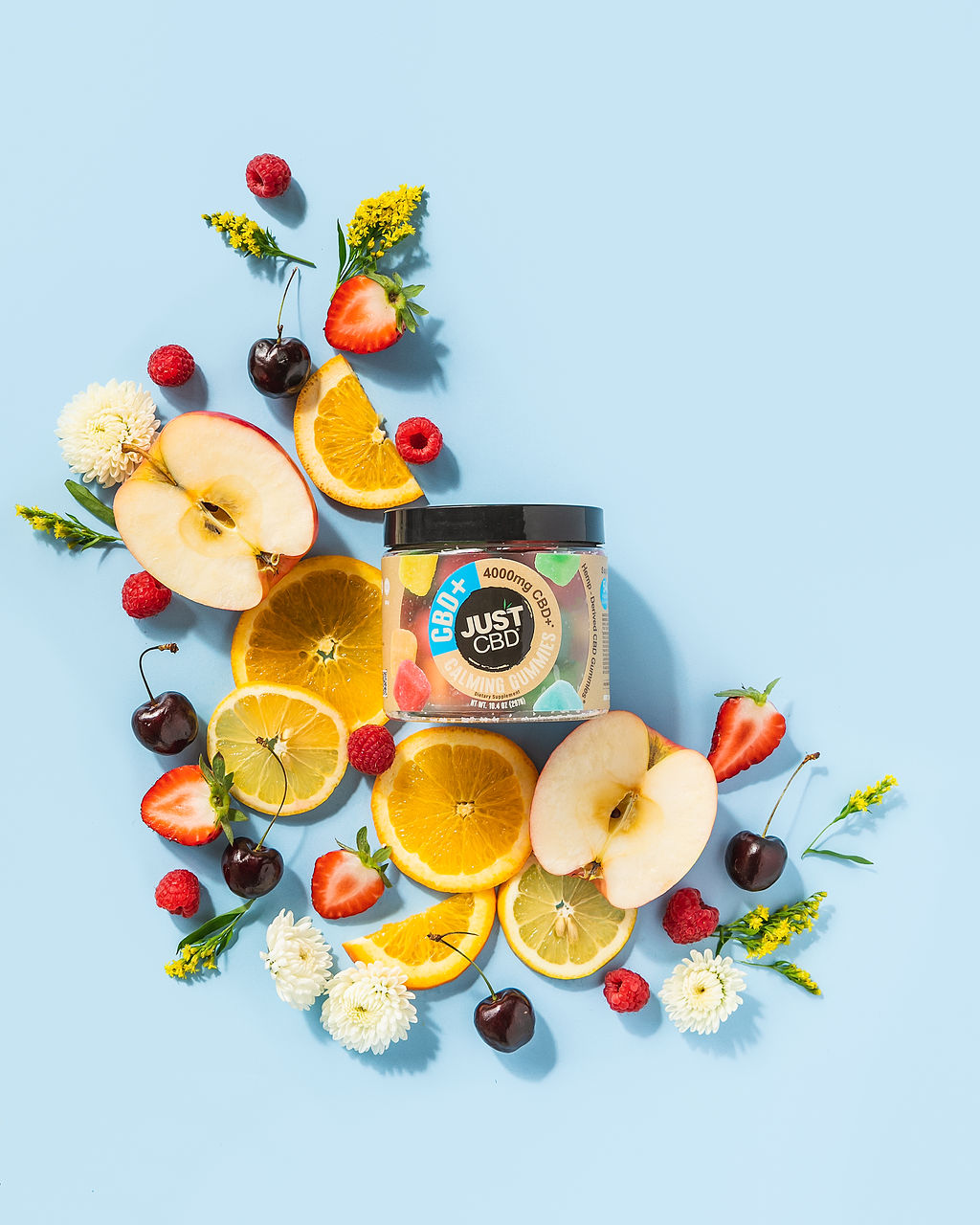Understanding Addiction and Habit Formation
Understanding the mechanisms behind addiction and habit formation is crucial when examining the potential for substances like CBD gummies to be habit-forming.
Defining Addiction
Addiction is a complex brain disease characterized by compulsive engagement in rewarding stimuli despite harmful consequences. It involves changes in brain circuitry that control motivation, reward, and self-control.
A key feature of addiction is craving, an intense desire for the addictive substance or behavior. This craving drives repeated use, even when it leads to negative effects on physical health, relationships, work, or finances.

Habit formation, on the other hand, involves learning associations between cues and behaviors. Habits are often automatic and performed without conscious thought. While habits can be beneficial, they can also become problematic when they are maladaptive or interfere with daily life.
It’s important to distinguish between addiction and habit formation because they have different underlying mechanisms and require different treatment approaches.
Distinguishing Addiction from Habit
Understanding the difference between addiction and habit formation is crucial when considering the potential for CBD gummies to be addictive or habit-forming. A habit is a learned behavior that becomes automatic and often occurs in response to a specific trigger. For example, brushing your teeth after every meal is a habit. Addiction, on the other hand, involves a compulsive engagement in rewarding stimuli despite negative consequences. It’s characterized by cravings, withdrawal symptoms when the substance or behavior is absent, and an inability to control its use.
CBD gummies, as they contain cannabidiol (CBD), may influence neurotransmitter systems in the brain associated with reward and pleasure. However, current research suggests that CBD itself does not have a high potential for addiction. Unlike THC, the psychoactive component in cannabis, CBD is not known to produce the “high” associated with dependence.

While CBD gummies are unlikely to be addictive, they could potentially become habit-forming due to their taste or perceived therapeutic effects. If someone develops a strong reliance on CBD gummies for anxiety relief or sleep aid, for example, they may experience withdrawal-like symptoms if they stop using them abruptly. This doesn’t necessarily mean addiction, but it highlights the importance of responsible use and potential dependence.
CBD’s Mechanism of Action
Cannabidiol, commonly known as CBD, interacts with the body’s endocannabinoid system (ECS), a complex network of receptors and neurotransmitters that plays a crucial role in regulating various physiological processes, including mood, sleep, appetite, and pain sensation. CBD exerts its effects by binding to specific receptors within the ECS, primarily CB1 and CB2 receptors, though it does not directly activate these receptors like THC. Instead, CBD acts as an agonist or antagonist depending on the specific receptor and situation, modulating the activity of neurotransmitters and influencing downstream signaling pathways.
How CBD Interacts with the Endocannabinoid System
CBD interacts with the endocannabinoid system (ECS), a complex network of receptors, enzymes, and neurotransmitters found throughout the body. The ECS plays a crucial role in regulating various physiological processes, including sleep, appetite, mood, and pain perception. CBD primarily exerts its effects by binding to and modulating the activity of cannabinoid receptors, particularly CB1 and CB2 receptors.
While CBD does not directly activate these receptors like THC (the psychoactive compound in marijuana), it interacts with them indirectly. CBD can bind to the CB1 receptor and inhibit the binding of other molecules, including THC. It can also influence the production and breakdown of endocannabinoids, the body’s naturally occurring cannabinoids.
Research on CBD and Dependence
Research exploring the relationship between CBD and dependence is relatively new and evolving. Early studies suggest that CBD itself does not possess addictive properties, as it does not interact with the brain’s reward pathways in the same way that substances like opioids or stimulants do. However, the potential for habit formation with CBD gummies, especially those containing additional ingredients like sugar or THC, remains a subject of ongoing investigation.
Studies on Animal Models
Research on the potential for CBD to be addictive has primarily focused on understanding how it interacts with neurotransmitter systems in the brain associated with reward and pleasure.
Studies conducted on animal models have yielded some interesting findings:
Clinical Trials in Humans
Understanding the mechanisms behind addiction and habit formation is crucial when examining the potential for substances like CBD gummies to be habit-forming.
Understanding the difference between addiction and habit formation is crucial when considering the potential for CBD gummies to be addictive or habit-forming. A habit is a learned behavior that becomes automatic and often occurs in response to a specific trigger. For example, brushing your teeth after every meal is a habit. Addiction, on the other hand, involves a compulsive engagement in rewarding stimuli despite negative consequences. It’s characterized by cravings, withdrawal symptoms when the substance or behavior is absent, and an inability to control its use.
CBD gummies, as they contain cannabidiol (CBD), may influence neurotransmitter systems in the brain associated with reward and pleasure. However, current research suggests that CBD itself does not have a high potential for addiction. Unlike THC, the psychoactive component in cannabis, CBD is not known to produce the “high” associated with dependence.
While CBD gummies are unlikely to be addictive, they could potentially become habit-forming due to their taste or perceived therapeutic effects. If someone develops a strong reliance on CBD gummies for anxiety relief or sleep aid, for example, they may experience withdrawal-like symptoms if they stop using them abruptly. This doesn’t necessarily mean addiction, but it highlights the importance of responsible use and potential dependence.
Cannabidiol, commonly known as CBD, interacts with the body’s endocannabinoid system (ECS), a complex network of receptors and neurotransmitters that plays a crucial role in regulating various physiological processes, including mood, sleep, appetite, and pain sensation. CBD exerts its effects by binding to specific receptors within the ECS, primarily CB1 and CB2 receptors, though it does not directly activate these receptors like THC. Instead, CBD acts as an agonist or antagonist depending on the specific receptor and situation, modulating the activity of neurotransmitters and influencing downstream signaling pathways.
Potential for Withdrawal Symptoms
While CBD gummies are unlikely to be addictive, understanding the potential for withdrawal symptoms is crucial for informed use. Withdrawal symptoms can occur when a substance or behavior that has become ingrained in a routine is suddenly discontinued, even if it’s not technically addictive.
Anecdotal Reports vs. Scientific Evidence
While there are anecdotal reports suggesting withdrawal symptoms from CBD gummies, scientific evidence supporting this is limited.
- Many individuals who report withdrawal-like effects after stopping CBD use may be experiencing a psychological dependence or placebo effect.
- Further research is needed to definitively determine if CBD itself causes physical withdrawal symptoms or if these symptoms are related to other factors, such as underlying medical conditions or the individual’s overall health status.
Factors Influencing Potential for Habit Formation
Several factors influence the potential for habit formation when it comes to substances like CBD gummies. Understanding these factors is crucial for comprehending whether or not such products could lead to problematic reliance.
Individual Sensitivity and Metabolism
Several factors influence an individual’s susceptibility to habit formation and their metabolic response to substances like CBD. Genetic predispositions play a role, with some individuals genetically more prone to forming habits. Environmental factors, including stress levels, social influences, and the presence of cues associated with the behavior, also significantly impact habit development.
Individual sensitivity to CBD’s effects can vary greatly due to differences in body weight, metabolism, endocannabinoid system composition, and previous exposure to cannabinoids. These variations can affect how quickly CBD is metabolized, its duration of action, and the intensity of its perceived effects, potentially influencing the likelihood of habit formation.
Metabolism, influenced by genetics, liver function, and other factors, dictates how quickly the body processes substances like CBD. Faster metabolism may lead to shorter-lasting effects and reduced potential for habit formation, while slower metabolism might result in prolonged effects and a higher risk of developing dependence.
Dosage and Frequency of Use
Several factors influence the potential for habit formation with any substance, including CBD gummies. These include:

Dosage and Frequency of Use: Frequent and high doses can increase the likelihood of developing a habit. The brain reinforces behaviors associated with pleasure and reward, making it more likely to repeat those actions when exposed to similar triggers.
Individual Biology: Genetic predispositions and individual differences in brain chemistry can affect how people respond to substances. Some individuals may be more susceptible to forming habits than others.
Environmental Cues: Certain situations, places, or people can act as triggers, prompting the desire for CBD gummies. For example, someone might reach for a CBD gummy after a stressful day.
Psychological Factors: Underlying mental health conditions like anxiety or depression can contribute to seeking out substances like CBD gummies for relief. While CBD may provide some benefits, it’s essential to address the root causes of these conditions through appropriate therapy and/or medication.
It’s important to note that habit formation doesn’t necessarily equate to addiction. However, developing a strong reliance on CBD gummies for emotional regulation or as a coping mechanism can be concerning and should be approached with caution.
Psychological Factors and Stress
Psychological factors play a significant role in both habit formation and addiction. For example, stress can contribute to the development of both habits and addictions. When people are stressed, they may be more likely to engage in behaviors that provide temporary relief, such as consuming CBD gummies.
Stress can also make it harder to break bad habits or resist cravings for addictive substances.
Recommendations for Safe CBD Use
Understanding the difference between addiction and habit formation is crucial when considering the potential for CBD gummies to be addictive or habit-forming. A habit is a learned behavior that becomes automatic and often occurs in response to a specific trigger. Addiction, on the other hand, involves a compulsive engagement in rewarding stimuli despite negative consequences. It’s characterized by cravings, withdrawal symptoms when the substance or behavior is absent, and an inability to control its use.
CBD gummies, as they contain cannabidiol (CBD), may influence neurotransmitter systems in the brain associated with reward and pleasure. However, current research suggests that CBD itself does not have a high potential for addiction. Unlike THC, the psychoactive component in cannabis, CBD is not known to produce the “high” associated with dependence.
While CBD gummies are unlikely to be addictive, they could potentially become habit-forming due to their taste or perceived therapeutic effects. If someone develops a strong reliance on CBD gummies for anxiety relief or sleep aid, for example, they may experience withdrawal-like symptoms if they stop using them abruptly. This doesn’t necessarily mean addiction, but it highlights the importance of responsible use and potential dependence.
Starting with Low Dosages
Understanding the difference between addiction and habit formation is crucial when considering the potential for CBD gummies to be addictive or habit-forming. A habit is a learned behavior that becomes automatic and often occurs in response to a specific trigger. For example, brushing your teeth after every meal is a habit. Addiction, on the other hand, involves a compulsive engagement in rewarding stimuli despite negative consequences. It’s characterized by cravings, withdrawal symptoms when the substance or behavior is absent, and an inability to control its use.
CBD gummies, as they contain cannabidiol (CBD), may influence neurotransmitter systems in the brain associated with reward and pleasure. However, current research suggests that CBD itself does not have a high potential for addiction. Unlike THC, the psychoactive component in cannabis, CBD is not known to produce the “high” associated with dependence.
While CBD gummies are unlikely to be addictive, they could potentially become habit-forming due to their taste or perceived therapeutic effects. If someone develops a strong reliance on CBD gummies for anxiety relief or sleep aid, for example, they may experience withdrawal-like symptoms if they stop using them abruptly. This doesn’t necessarily mean addiction, but it highlights the importance of responsible use and potential dependence.
To minimize the risk of developing any kind of dependence, consider these recommendations:
- Start with low dosages:
- Be mindful of frequency of use:** Avoid using CBD gummies excessively or on a daily basis unless specifically advised by a healthcare professional.
- Track your intake: Keep a record of how much CBD you consume and how often to monitor your usage patterns.
- Seek professional guidance**: Consult with a doctor or qualified healthcare provider if you have any concerns about potential dependence or withdrawal symptoms. They can provide personalized advice based on your individual needs and medical history.
Begin with a minimal amount of CBD to determine your body’s tolerance and response. Gradually increase the dosage as needed, always staying within recommended guidelines.
Monitoring Individual Response
Recommendations for safe CBD use include starting with a low dose and gradually increasing it as needed, monitoring your response, and consulting with a healthcare professional if you experience any adverse effects or have underlying health conditions.
Monitoring your individual response to CBD is crucial for safe and effective use. Pay attention to how your body reacts to different doses and frequencies of CBD consumption. Note any changes in mood, sleep patterns, appetite, energy levels, or other physical sensations.
Consulting with a Healthcare Professional
Consulting with a healthcare professional is crucial before using CBD gummies or any CBD product.
They can assess your individual medical history, current medications, and potential drug interactions to determine if CBD is appropriate for you and to advise on safe and effective dosages.
A healthcare professional can also help monitor your response to CBD and address any concerns or side effects you may experience.
Remember, while CBD gummies offer potential benefits, responsible use and guidance from a qualified healthcare provider are essential.
CBD Gummies for natural healing – shop now
Try your favorite cannabidiol infused gummies at JustCBD
Carmen Alexandra
Crunchy Jewels
- Xela Rederm Skin Booster Treatments Near Okewood, Surrey - January 22, 2026
- Xela Rederm Skin Booster Treatments Near Capel, Surrey - January 21, 2026
- Why The Craftsman Series Vape Is Taking Over The Market In 2025 - January 19, 2026
